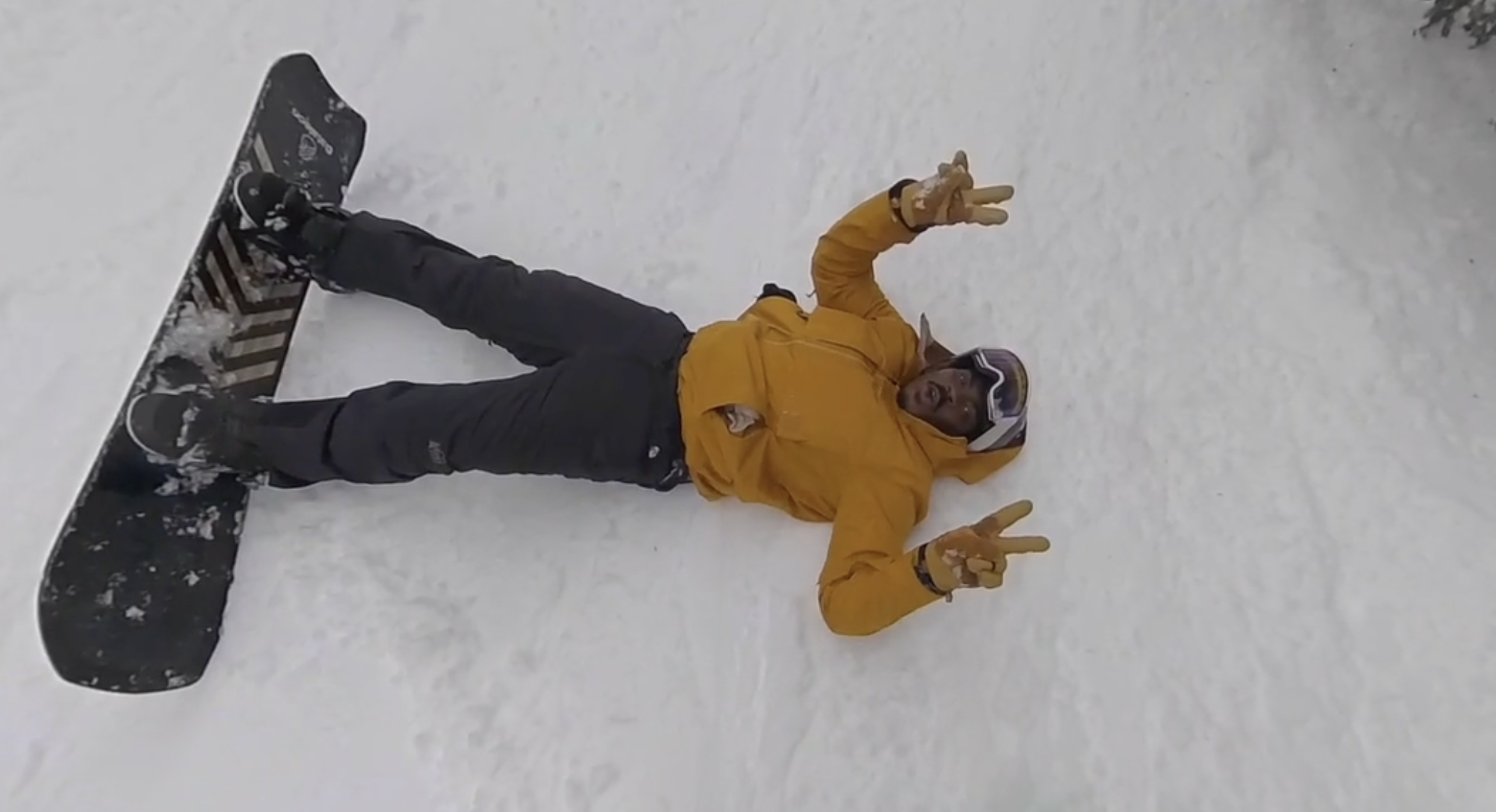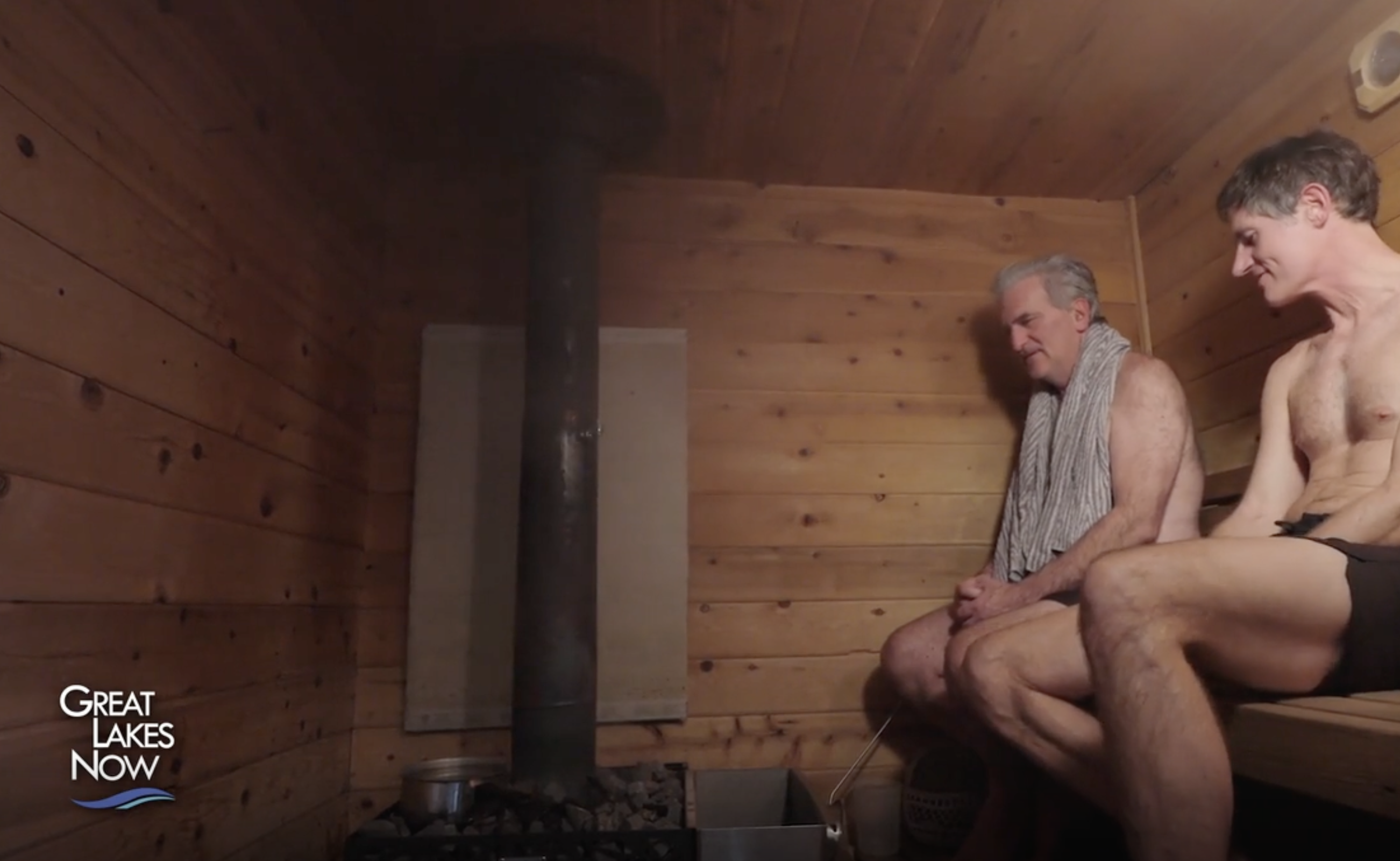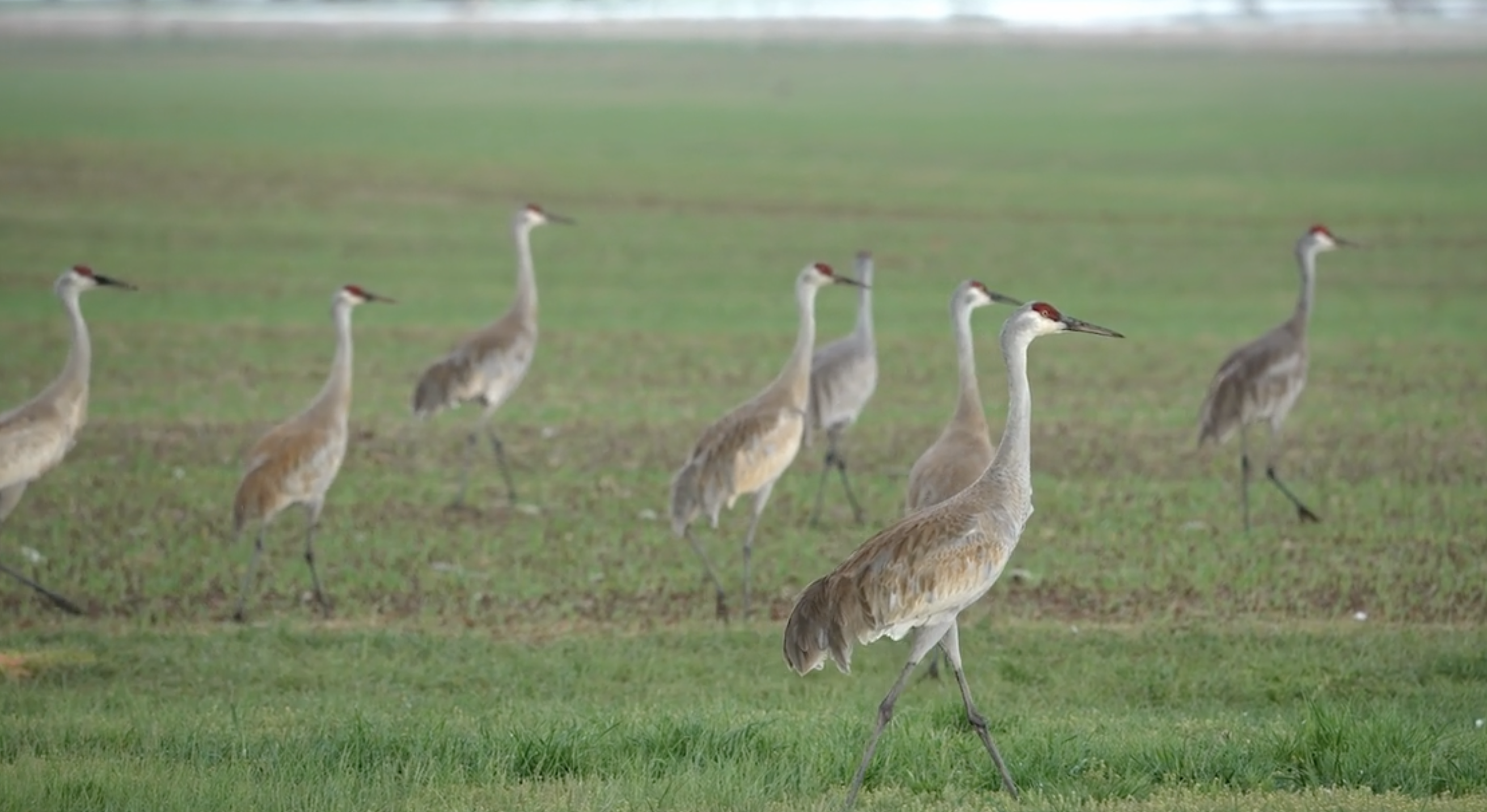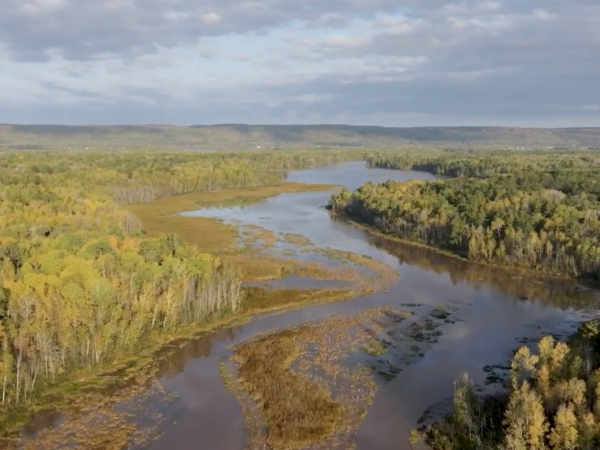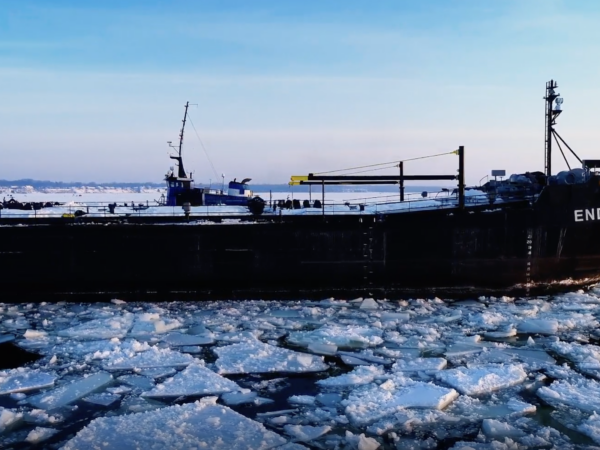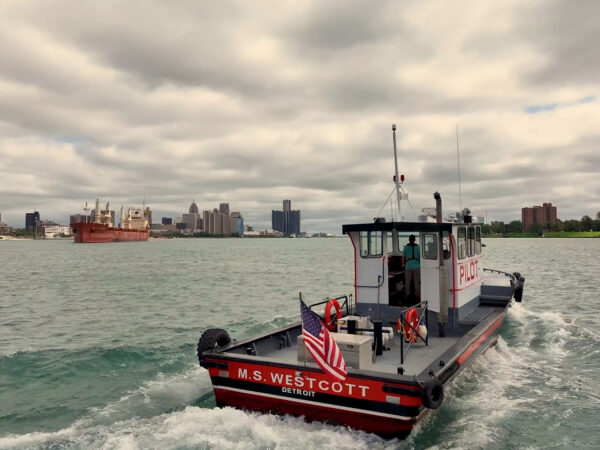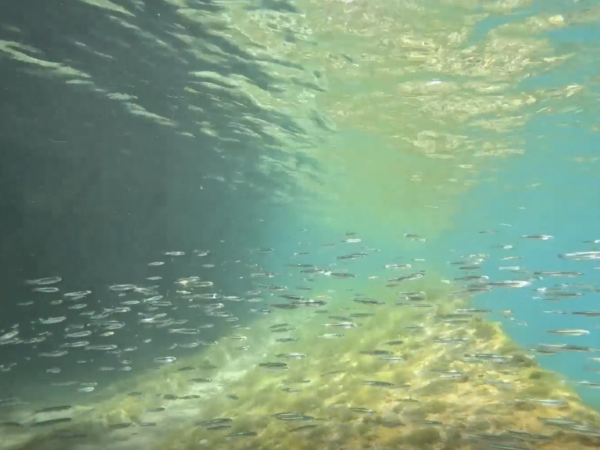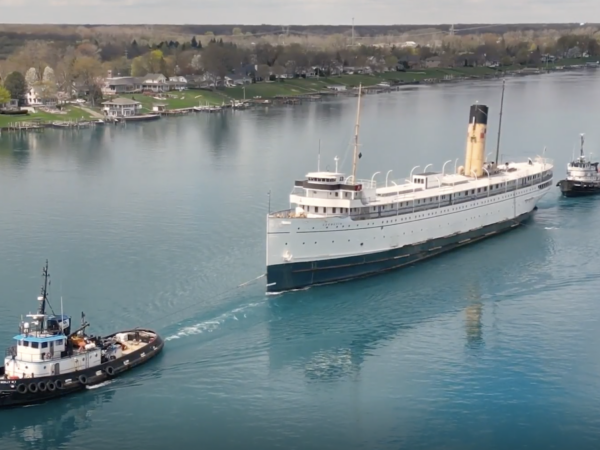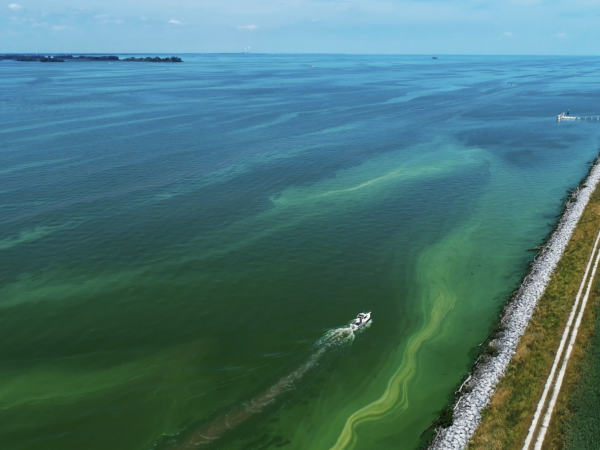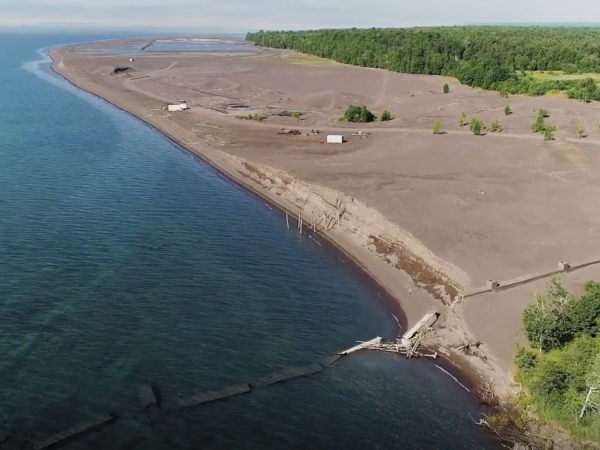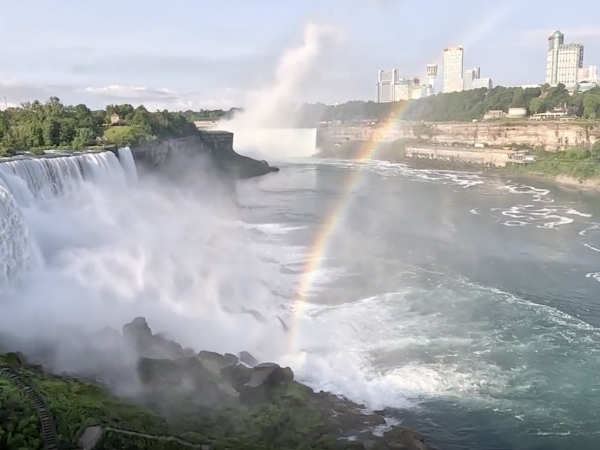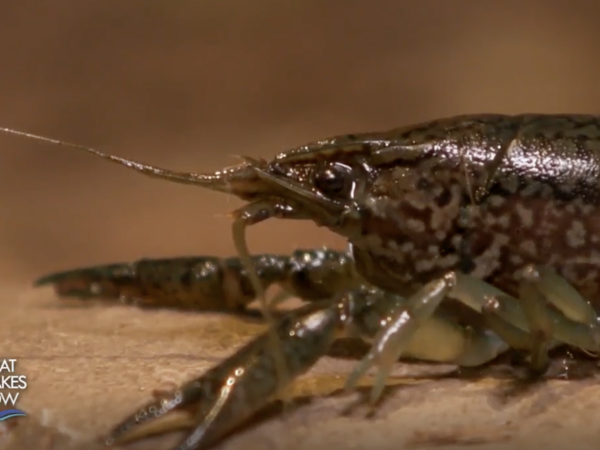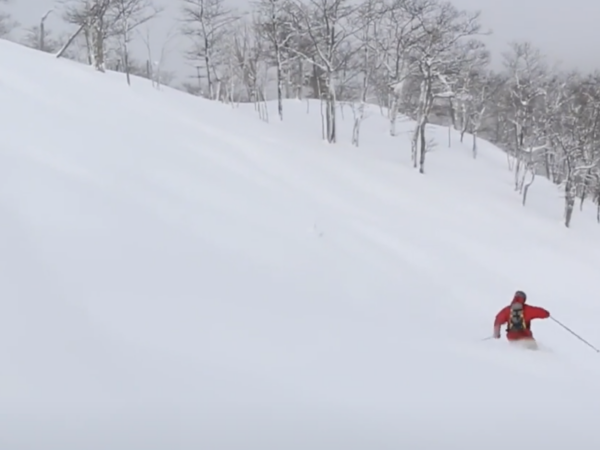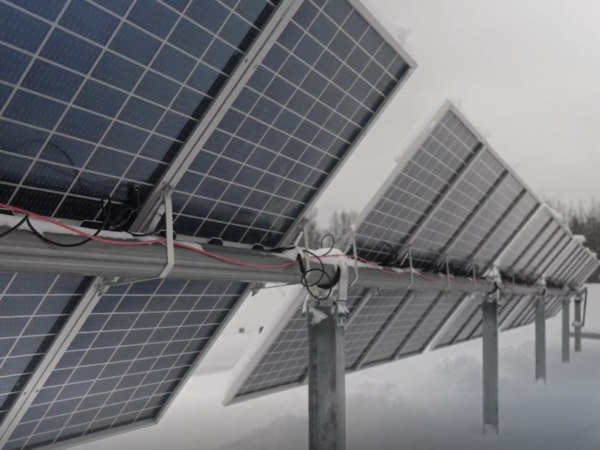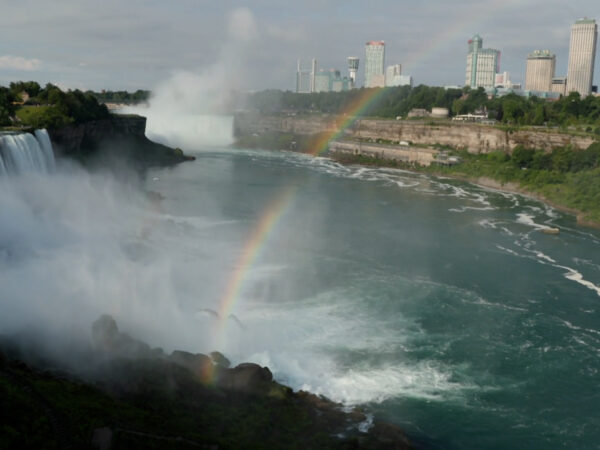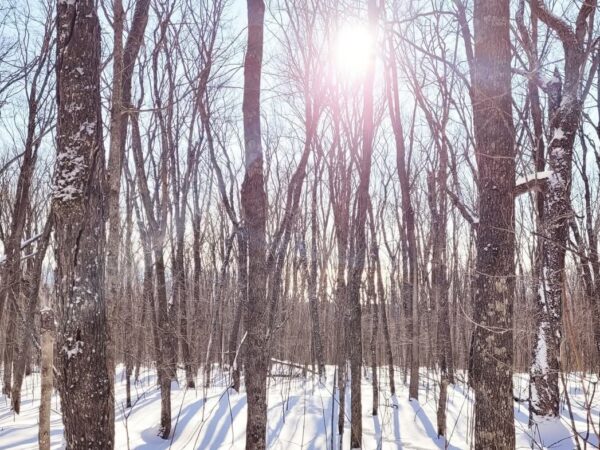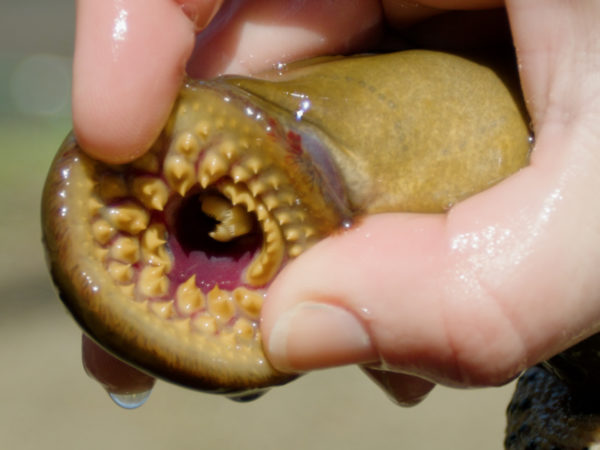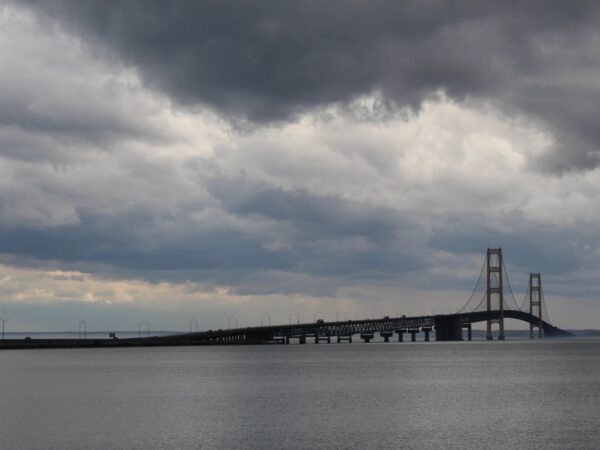IN THIS EPISODE:
A Lake Superior skiing destination for powderhounds, a look at how the centuries-old practice of sauna is picking up steam in the Great Lakes, and more news from around the region with The Catch.
When to Watch?
Check your local station for when Great Lakes Now is on in your area.
The Best Skiing in the Midwest?
SEGMENT 1 | Lac La Belle, Michigan, Keweenaw Peninsula, Mt. Bohemia
They call themselves powderhounds. After major snow storms, you will find them cruising to Michigan’s Keweenaw Peninsula for some of the finest powder skiing in America. A place called Mount Bohemia is often their destination. Beginners are discouraged from going, as the slopes look more like cliffs with trees, rocks, and plenty of powder.
Great Lakes Now recently sent a complete novice up there to check it out … and he actually survived. Correspondent Ian Solomon first set foot on a snowboard just 48 hours before arriving at Mount Bohemia.
“I’m not supposed to be here,” Solomon said. “They have been kind enough to keep me alive. Do not come here if you do not know what you’re doing.”
So why do so many expert skiers and snowboarders flock to this place? It’s the powder. Steve Rowe is an expert skier and self-professed powderhound who grew up in the Great Lakes region. He said that Lake Superior plays a key role in producing the massive amounts of snow Mount Bohemia gets each winter.
The Keweenaw Peninsula gets a lot of lake effect snow, which is the light fluffy stuff known as powder that skiers love. The New York Times recently called Mount Bohemia a “Midwestern Paradise for Skiers Who Dare.”
Good Heat
SEGMENT 2 | Minneapolis, MN; Duluth, MN
Dan Kraker, a Great Lakes Now correspondent, took a deep dive into the steam, sweat and allure of sauna culture in the Great Lakes. Kraker began with Glenn Auberbach, a longtime sauna evangelist in Minneapolis, who started a website in 2009 called Sauna Times.
Auberbach fired up his backyard sauna and told him about how and why he has embraced the sauna life ever since.
After meeting Auberbach, Kraker headed to a Minneapolis park where a mobile public sauna is set up outside a cross country ski chalet. Members of the 612 Sauna Cooperative spoke about the growth in sauna culture, and what they love about it.
Finally, Kraker checked out a “saunapreneur” called Cedar and Stone in Duluth, which manufacturers and ships high-end backyard saunas around the country. The company also offers a sauna experience in a floating barge on Lake Superior, where participants can plunge into the cold water after soaking in 200 degree heat. Kraker heated up and then took the plunge.
The Catch: News about the Lakes You Love
SEGMENT 3 | Great lakes watershed
This segment — The Catch — will help keep you in the know. This month, explore why no offshore wind farms have been built in the region, learn how Wisconsin lost 30% of its dairy farms over five years, and meet bird conservationist and migration counter Alison Vilag.
Nicole Pollack, an environmental journalist for Inside Climate News, explored why there haven’t been any successful offshore wind developments in the Great Lakes, despite enthusiasm for them in the 2010s. “There was a sense at the time that the Great Lakes could be the next big thing for wind power if they could just harness it,” Pollack said.
The lack of wind power in the region comes down to a variety of issues, from insufficient technology to a lack of community support.
Next, discover why Wisconsin lost 10% of its farms and 30% of its dairy farms between 2017 and 2022. Robert D’Andrea covered the story for Wisconsin Public Radio. Despite fewer farms, the market value of Wisconsin’s agriculture products has grown. “What we’re seeing here is fewer farms, but the remaining farms are much larger. They have more land, they have more animals, and they’re producing more products,” D’Andrea said.
Lastly, meet bird conservationist and migration counter Alison Vilag. She’s traveled all over the country and has helped document a loss of birds that scientists call staggering. “We live in a time where birds in general aren’t doing well,” Vilag said. “And I do want to draw attention to that. It’s estimated that in the last half century, this continent alone has lost a third of its birds, which is not a small number.”
Featured Articles


